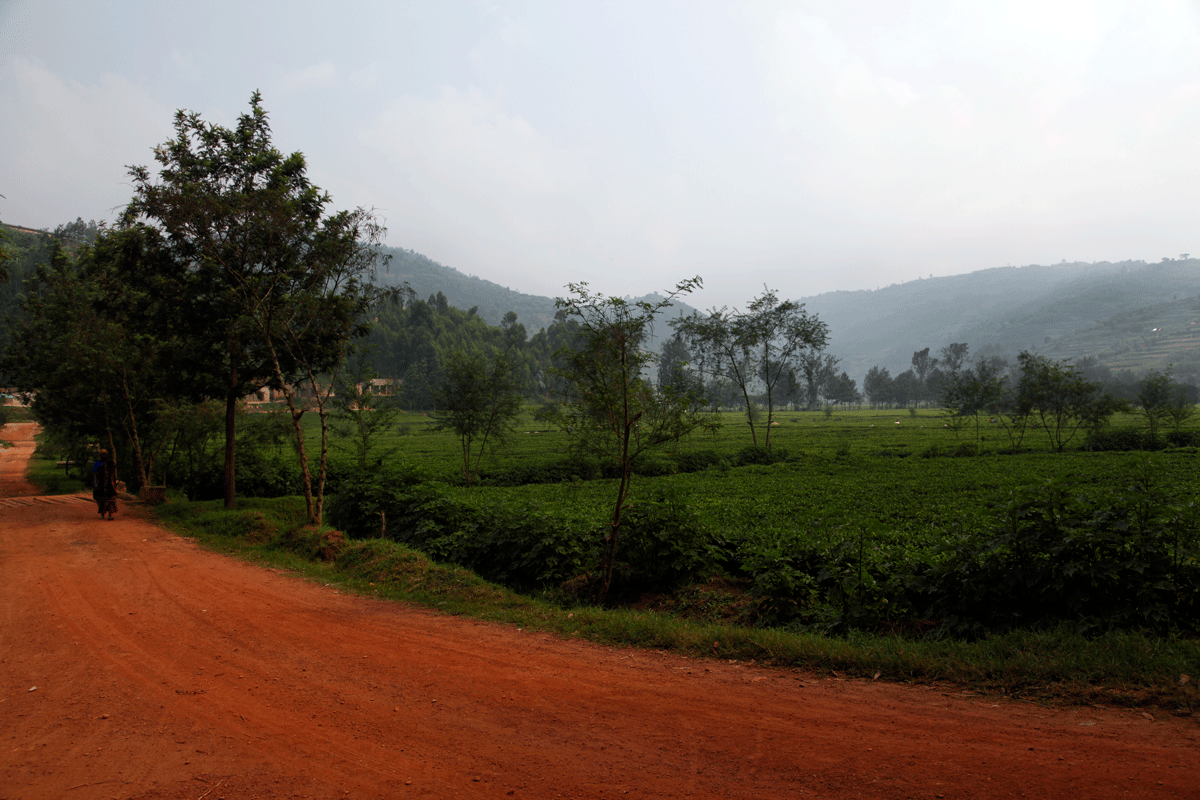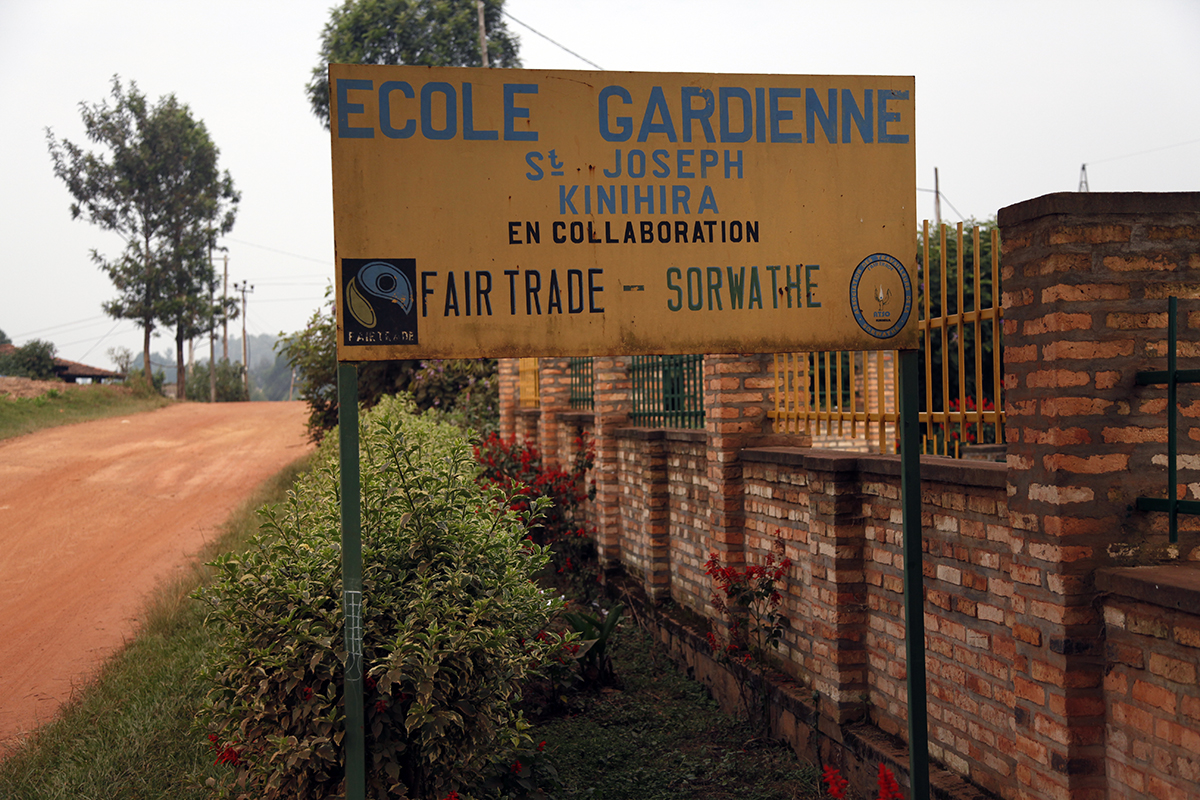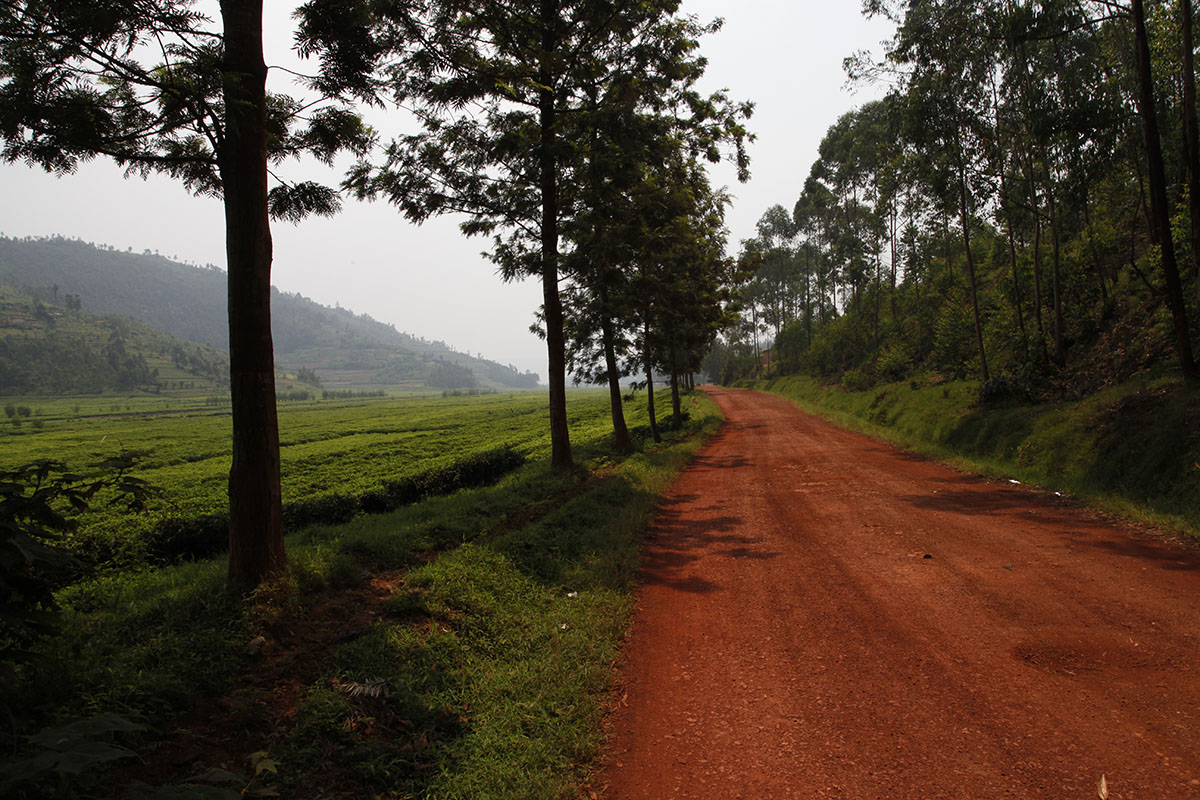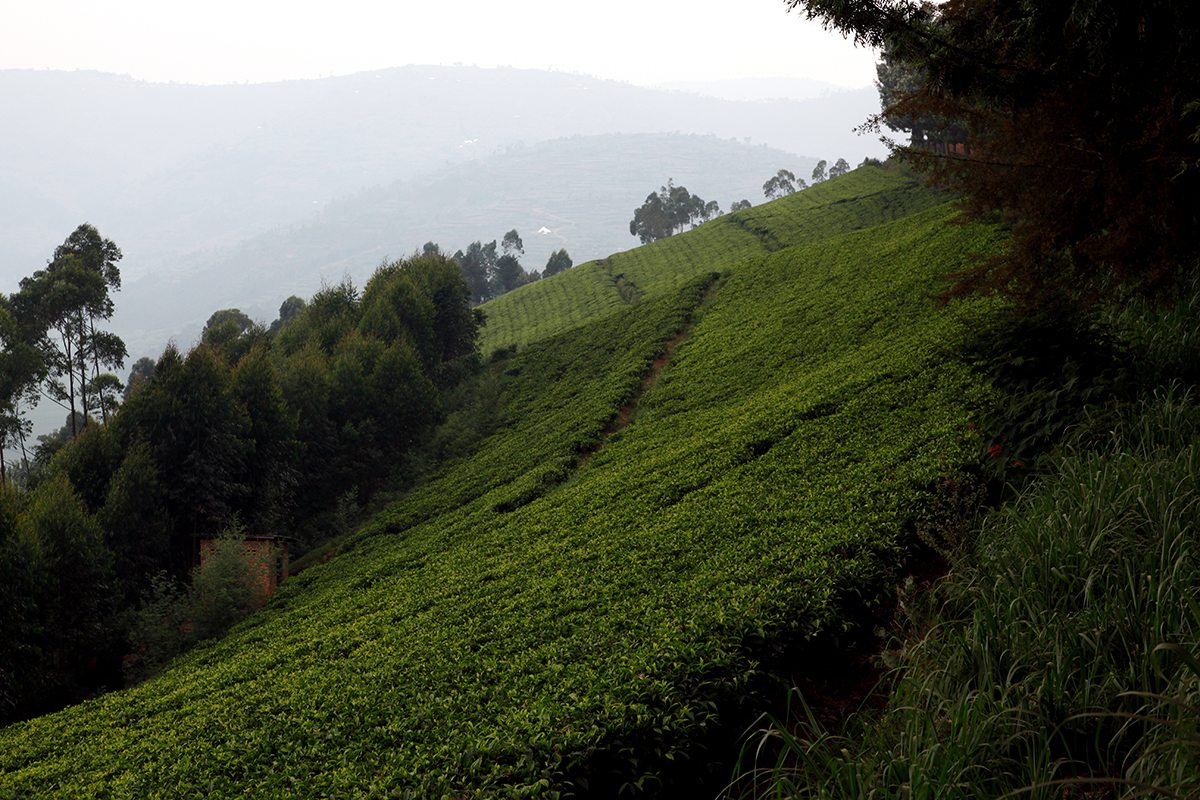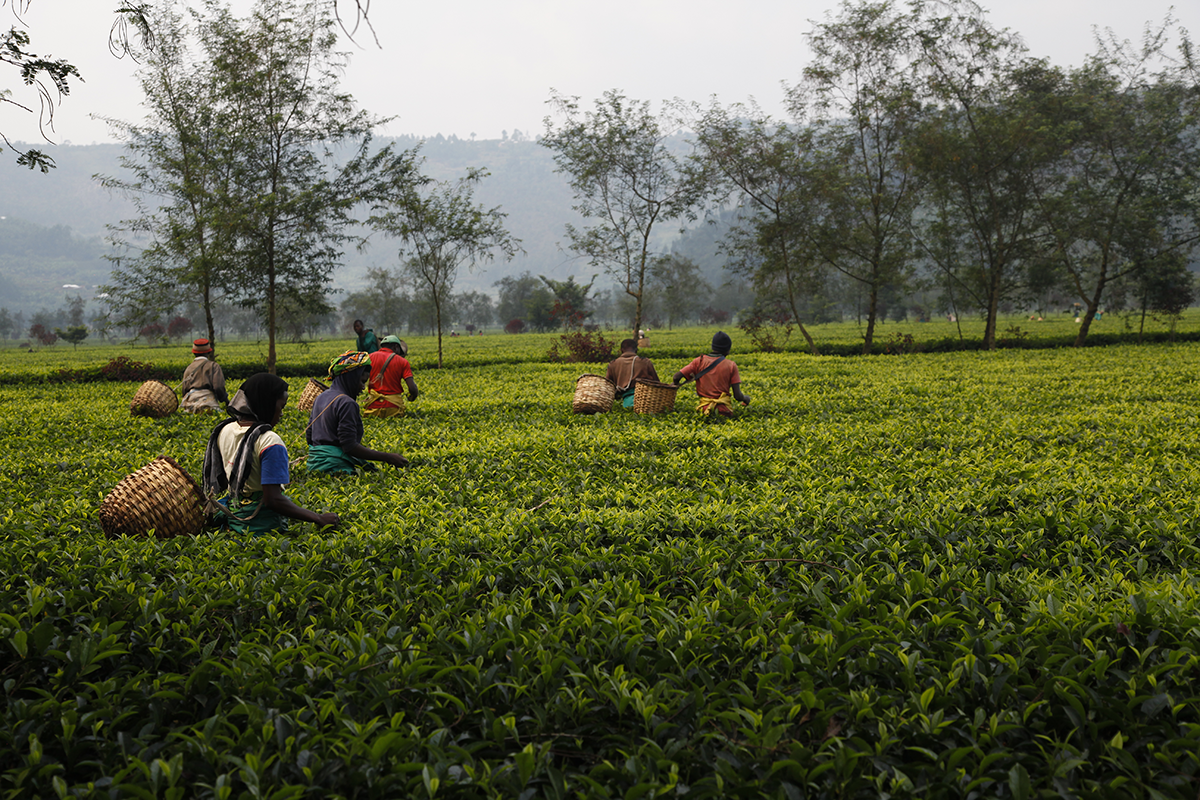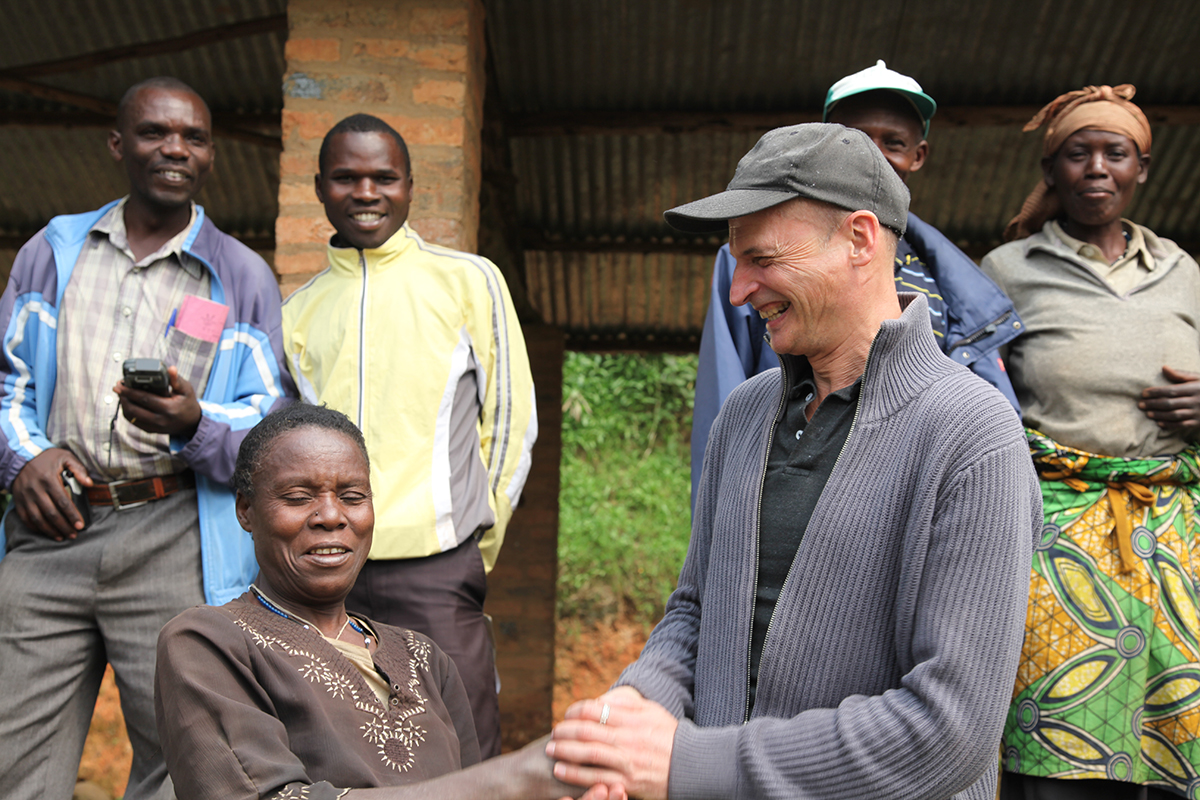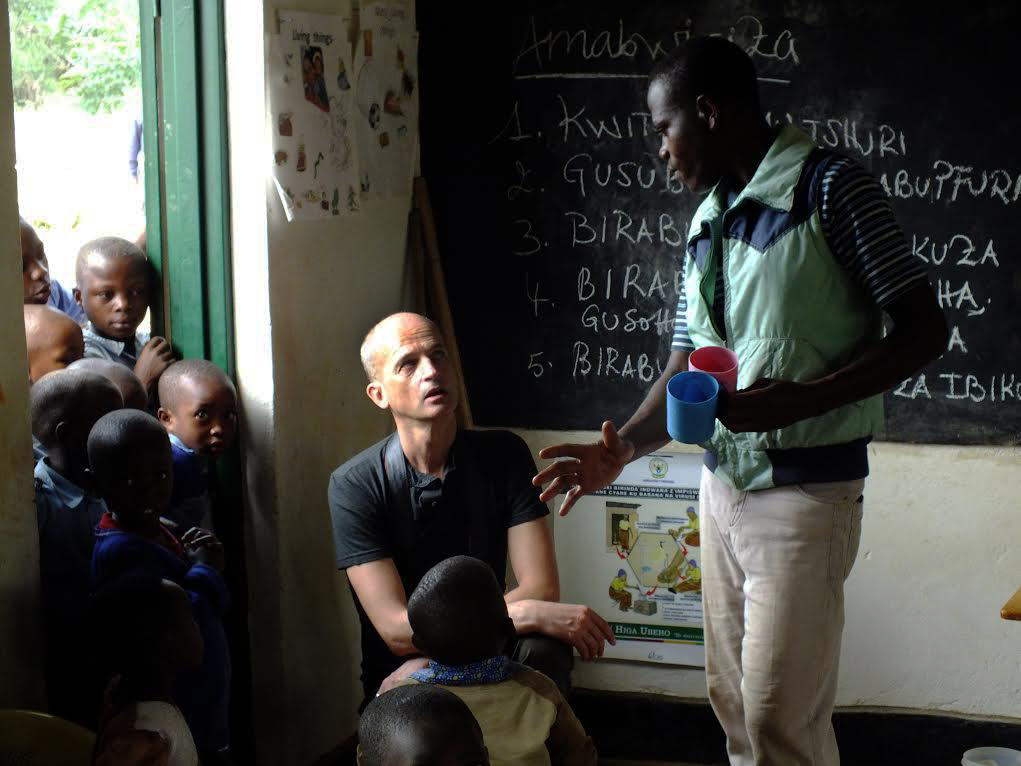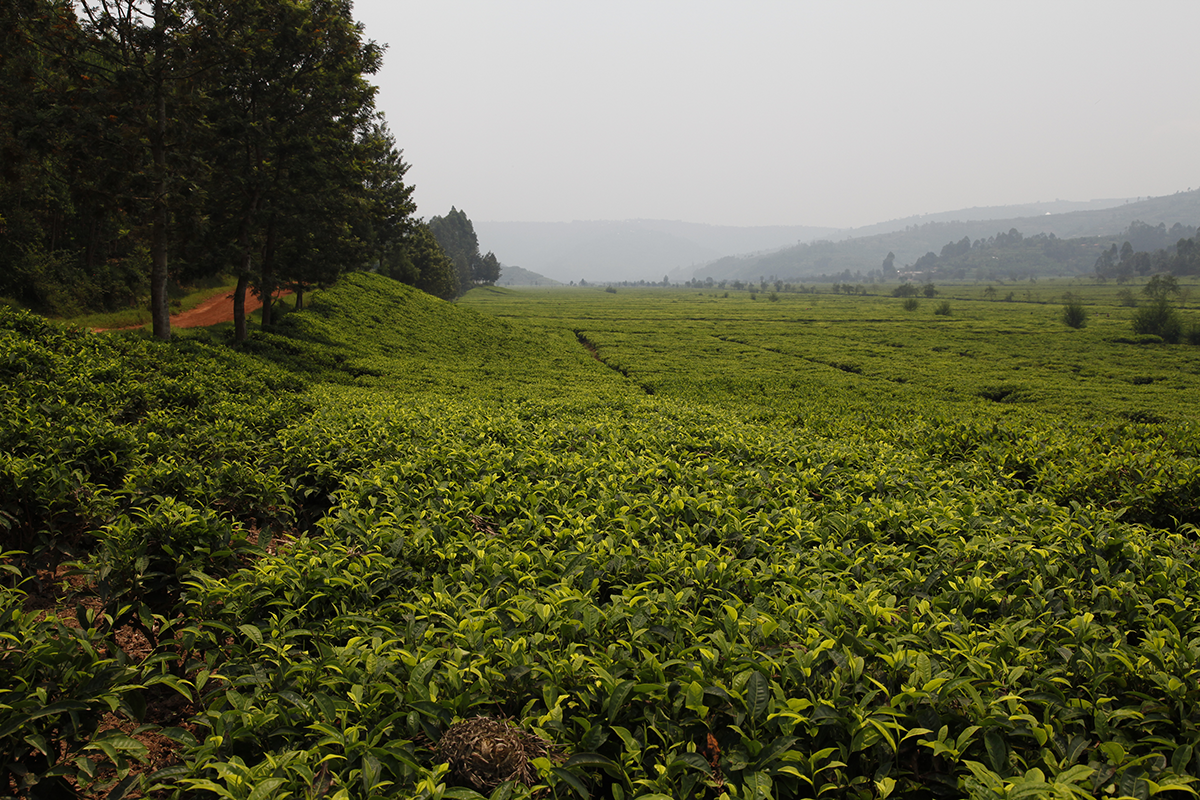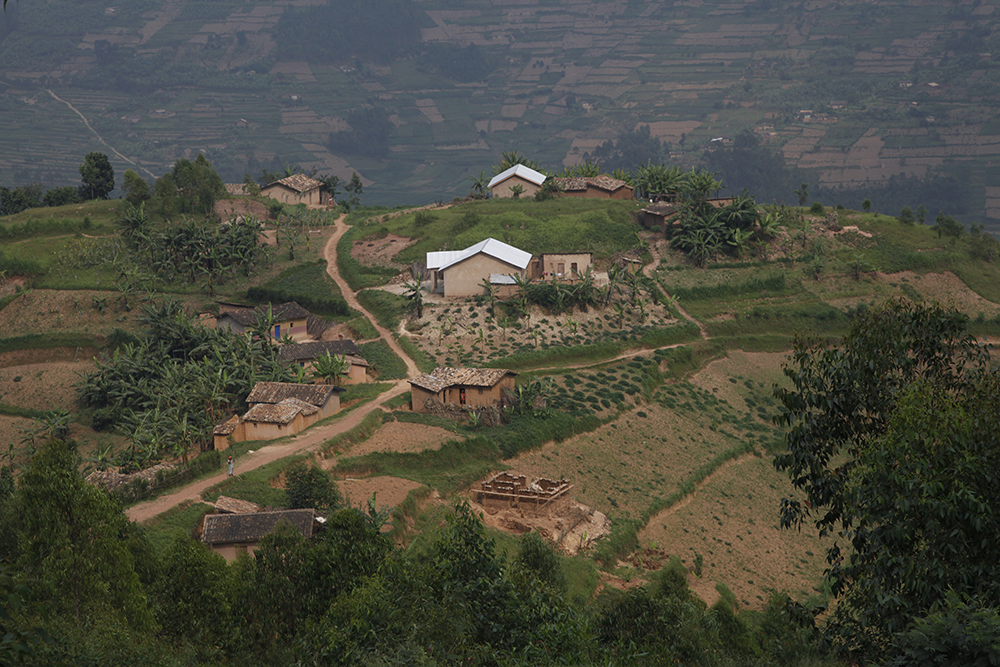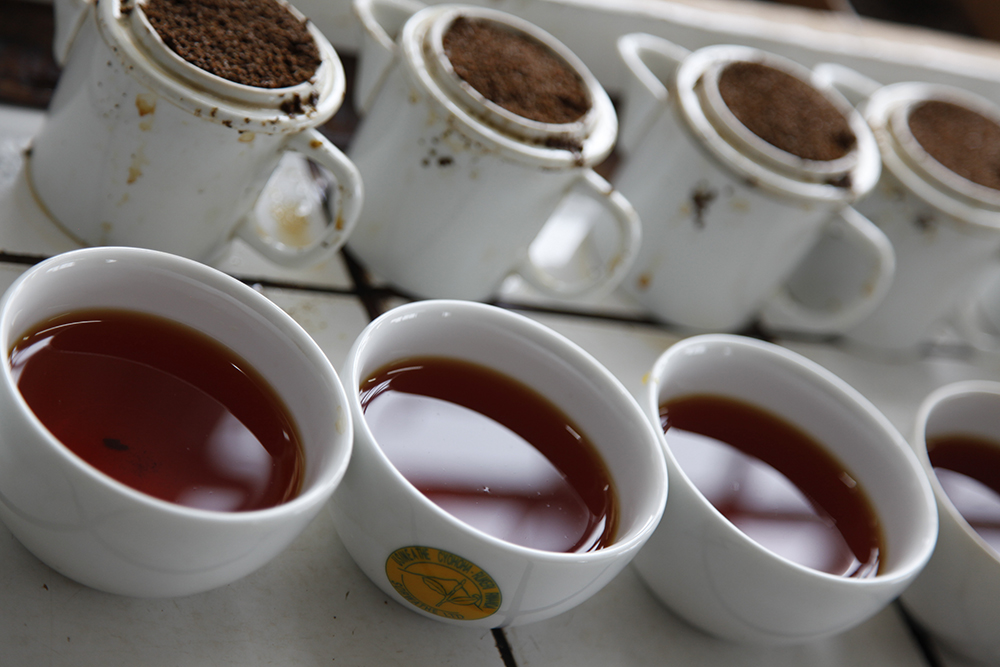I’m often asked if there are teas, regions or plantations yet to be discovered. But a tea sourcer is not the same as an explorer. You don’t suddenly stumble upon tea factories in the middle of the jungle that no one knew existed, or a part of the world where no one had any idea that delicious teas could be made. We know where tea grows. There are some tea-producing countries and regions that are unknown to the general public, but not necessarily to a tea sourcer. Tea is grown in New Zealand, Cameroon and Chile, for example. It also grows in Hawaii, the Azores, and even in France, in Brittany and the Pyrenees. The real work of the tea sourcer is not so much about discovering unknown places; rather, it involves keeping track of plantations that are still in the learning phase, preferably plantations that show strong potential (which means an ideal soil and climate), and supporting them, so that one day we can bring you delicious teas from these new regions.
Rwanda
Nearly time to go back to school!
Here, like elsewhere, it will soon be the start of a new term. Part of our work is to ensure that, on the tea plantations, the children in the village go to school. It is not enough to find delicious teas, although we are proud of the way they are produced. When we visit a plantation, along with a visit to the clinic, we always go to see the classrooms and meet the students and teachers.
Heading to Rwanda
How would you like to accompany me on a trip to a tea plantation in Rwanda? We’re a three-hour drive north of Kigali. Before reaching the Sorwathe plantation, situated on the high plateau, we will travel for miles along a stunning valley covered with tea plants.
The road resembles a long scar. In the evening light, this gash of earth turns shades of blood red.
Common sense
A farmer who grows tea might have to deal with various threats to his crop: insects (spiders, mosquitoes, etc.) that damage leaves, caterpillars which like to eat young plants, fungi that grow along the trunks of the bushes. But there are solutions to these problems that don’t involve pesticides. One is to encourage the presence of birds and other predators by growing hedges near the tea plants. Another important factor is altitude – pests are much less of a problem at low temperatures. Nature must be respected, and tea should be planted in a suitable environment. In the same way that we don’t build a house in a bog, tea should not be planted in an environment that is too humid, at low altitude, on flat, undrained land that is intensively farmed and stripped of all other trees and plants. In those circumstances, it is likely not to be organic. It makes sense when you think about it.
Starting from scratch every time
When I’m looking for premium teas, I look at what the farmers and plantations I already know are producing. I also look for new farms, sometimes in new regions, sometimes in new countries. Sourcing premium teas is like starting from scratch every time. When it comes to rare and exceptional teas, there is no guarantee that a reputable producer will be able to make a tea as amazing as the previous year’s. You have to try the teas, blind, so you’re not influenced by the prestige of a name or your goodwill towards a farmer. And sometimes you have to pack your bags and set out on an adventure. Rwanda, for example, can produce some very good teas, and is among the countries I intend to return to soon and explore different plantations.
A job full of emotion
Naturally, I have emotions. I never return from my travels unmoved. Yes, in the strictest sense my job consists of visiting tea fields, talking with producers, tasting, and understanding how the tea is made. But in practice my work doesn’t stop there. It’s not just about tea leaves, plants, machines, flavours. Most of all, tea is about people. Men and women. Smiles, surprises, joy, pain, laughter, fear, curiosity, anxiety, fun, desires, challenges, suffering, pride, hopes and dreams… The people I meet up in the mountains give me all this. So as soon as I see a familiar landscape, I feel moved. I think back to the time I was there before, to the people. I remember what I learnt about life in those places. I remember my feelings. I don’t wear armour when I travel. A journey is like a shipwreck, and people whose boat has not sunk will never know the sea, wrote Nicolas Bouvier, a writer I love. So, sometimes I sink. I return a different person from when I set out; I’m not exactly the same on my return. And sometimes I don’t want to come back. I want to lose myself. People’s lives touch me, their emotions touch me. I have this incredible opportunity to meet people who are different from me, different in every respect – in their culture, religion, language, ethnicity. Different, but the same in that we are all human. And often, when I come back down from a mountain after spending several days up there, I need to rest. To take a break before I reach the valley. I need to sit at the roadside or at the edge of a field before going back to the city, before forgetting, forgetting why I left this place I already loved. When I come back down from my mountains, I need to stop, take a breath, not let things go too quickly. I need to dream, to cry, sometimes, to be aware of what I’m leaving, to not be in a rush. I simply need to breathe, to fill my lungs one last time with blue air; to live.
?Visiting schools is part of my job
A tea plantation, a farm that produces tea, is a whole world in itself. Wherever tea is grown, wherever it’s processed, there’s both an agricultural aspect and a human aspect. Tea is where these two paths meet: plants and people. So when I meet tea producers I naturally take an interest in every part of life on the farm: the quality of the tea, of course, as well as the plants and soil, and how they’re respected. Also the quality of the environment, forests and rivers; the quality of housing, and the treatment workers receive if they’re injured; the quality of all preventive measures put in place and, most of all, the quality of education. Visiting schools is part of my job, and I really enjoy talking with the students and teachers alike. I wouldn’t miss these moments, or rush them, for anything in the world.
Being present in the moment
Tasting dozens of teas like I do every day of the year requires the ability to be present in the moment. You can’t compare several teas or form an opinion on the aromatic richness of a liquor if you’re rushed, stressed, preoccupied or simply thinking about other things. Tasting involves analysis, and this sensory analysis means you need to be very present. When I’m not in exactly the right state of mind for this task, which can happen to anyone, if there’s noise around me or if I’m distracted by something, if I’m tense or the slightest bit annoyed, I get away from everything. And I take however long I need to look at a beautiful landscape like this one. I focus on the scene before me. I gaze at it until I’m thinking of nothing else. I dive into it in the true sense, until I’m ready, free from all distractions; until I’m present in the moment. Then I can go to my tasting sets and contemplate the flavours and aromas of the teas I drink.
I recommand this focusing exercise before every tasting session.
“What’s the news?”
There’s something no planter will ever stop me from doing, and that’s walking – setting out on foot for at least one or two hours, every day. I love it. Alone or in company, either way, I love to walk; I love meeting people, observing the changing light and weather, the beauty of blossom, the colour of cloth. I like to sit down on a doorstep and exchange smiles with people I know nothing about but with whom I share a connection, because we live on the same planet, of course, and also because tea probably plays a part in their lives too. You can learn a lot by walking: about the way people live, the methods they use to grow tea, the weather, the geography, and then all those colours and smells. Of course there are strange creatures too, sometimes snakes that are completely unknown, weird insects, things that jump. But I feel good. I sit on the edge of a rock when I want to admire something, when it’s beautiful, and simply because it’s good to take one’s time, to ask oneself what our purpose is on our small planet, to ponder the meaning of life. Tea makes you slow down. And tea also teaches you to be still, to learn to breathe, literally and figuratively; it teaches you to stop being so restless, running around from morning to night without really knowing why.
Here, three hours north of Kigali, on the little paths that wind through the mountains, there’s a lovely way to say “hello”. When you meet someone else, they greet you by raising their arms as if you’re a long-lost friend, with a joyful “Amakuru!” And this hello means “What’s the news?”
Overexposed broken leaves
Sometimes I’m asked to taste some very good teas, before being served others that don’t interest me at all – broken-leaf teas, for example. I taste them unenthusiastically and move on as quickly as possible. If the light is good and the place interesting, I like to play around with my camera while my host finishes the tasting. I experiment with the settings on my EOS5D as a way of commenting on the quality of teas in front of me. I distort the teas I don’t like – I overexpose them, as I’ve done here. I subvert reality, I frame the shots differently; I’m not interested in these overly black liquors, these broken leaves that develop a dreadful astringency and are devoid of any subtlety. I prefer to create something interesting with my toy, while my puzzled host looks on – he’d rather I got on with tasting and took fewer photos.

